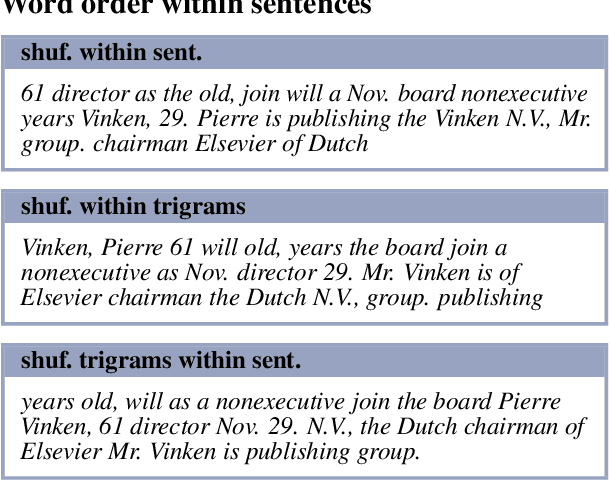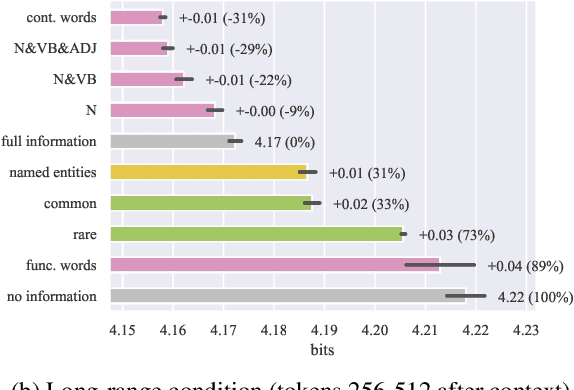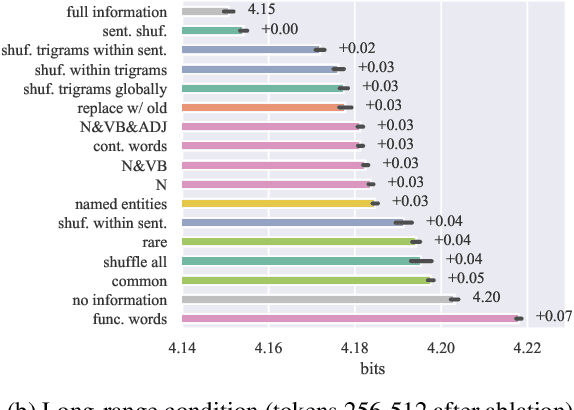What Context Features Can Transformer Language Models Use?
Paper and Code
Jun 15, 2021



Transformer-based language models benefit from conditioning on contexts of hundreds to thousands of previous tokens. What aspects of these contexts contribute to accurate model prediction? We describe a series of experiments that measure usable information by selectively ablating lexical and structural information in transformer language models trained on English Wikipedia. In both mid- and long-range contexts, we find that several extremely destructive context manipulations -- including shuffling word order within sentences and deleting all words other than nouns -- remove less than 15% of the usable information. Our results suggest that long contexts, but not their detailed syntactic and propositional content, are important for the low perplexity of current transformer language models.
 Add to Chrome
Add to Chrome Add to Firefox
Add to Firefox Add to Edge
Add to Edge